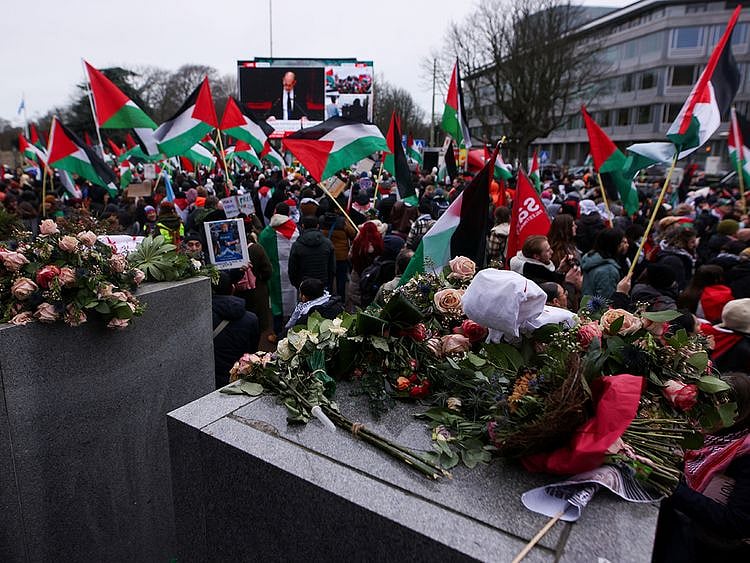South Africa puts social diversity first
Following colonialism, nation recognised that coexistence is essential for development

Last week, South Africa commemorated three decades since the first free elections open to all citizens, regardless of their skin colour, marking the end of the long and oppressive era of white-settler colonialism.
The South African society’s experience holds humanitarian significance, as it exemplifies a choice for coexistence rather than expulsion.
Addressing the crowd, South African President Cyril Ramaphosa said, “We celebrate not only the end of the white settler government that marginalised black citizens but also our unity in recognising that coexistence is essential for economic development and lasting peace. Today, we enjoy our freedom, equality, and diversity, embracing a shared identity as a rainbow nation, comprising individuals of various races, religions, and cultures.”
The world recognised President Nelson Mandela’s pivotal role in fostering this unity. Despite enduring over two decades of imprisonment under an oppressive regime, Mandela, upon attaining freedom and assuming the presidency, chose not to seek vengeance against those who had incarcerated him.
Israel’s discriminatory practices
This spirit of rejecting injustice, wherever it may occur, likely influenced South Africa’s decision to lodge a complaint against Israel at the International Criminal Court.
Having themselves confronted racism, South Africans are particularly attuned to Israel’s discriminatory practices, prompting them to champion human rights and denounce a regime accused of perpetrating genocide.
With a few exceptions, modern societies comprise a mosaic of cultural, ethnic, linguistic, and religious backgrounds. While they may share certain commonalities, they also exhibit significant differences.
To navigate this diversity, modern nation-states have instituted legal frameworks, often enshrined in constitutions or public law, that prioritise principles of equality among citizens, regardless of their diverse ethnic backgrounds.
In our Arab region, where we witness heated civil conflicts in countries like Yemen, Libya, and Sudan, or simmering tensions in various other parts, the fundamental cause of this discord and strife lies in the failure to acknowledge the social diversity.
Amin Maalouf, a Lebanese-French author born to a Catholic mother and a Protestant father, with a Turkish grandfather, sounded the alarm in his renowned book “The Name of Identity” (2004). In his book, he elucidated how identity can serve as a nefarious instrument of violence.
In many societies, the unfortunate slogan of “national identity” was invented to politicise and gain political interest. This led to divisions among groups and the proliferation of hatred. The truth is, the modern Arab state, in most cases, found it hard to establish an identity based on a scientific rule.
In Iraq, the Baath regime attempted to subject the entire population under its Baathist ideology. This approach conflicted with the notion of “one Arab nation with an eternal message,” especially given that nearly a third of Iraqis are Kurds with distinct cultural and linguistic identities.
Cry of national identity
This discrepancy fuelled prolonged conflict and invited external interventions. Similarly, the Houthis in Yemen have pursued exclusionary policies, displacing other Yemeni groups with differing ideological affiliations.
Moreover, the ongoing conflict in Sudan epitomises a form of identity exclusion, echoing past exclusionary practices against the people of the south. In Lebanon, the consequences of relentless exclusionary efforts are well-known.
Therefore, the rallying cry of national identity, which rejects the other within the same country, mirrors a hallmark of fascism that proliferated after the First World War. This ideology, responsible for the deaths of millions in its wake, and continues to claim tens of thousands of lives in Gaza today, perpetuating a venomous fanaticism at odds with human nature and history.
Throughout the ages, peoples have intermingled, fusing diverse cultures. In our contemporary era, such fusion and diversity have become defining traits of the times we live.
Paradoxically, the killing of the Palestinian cause reflects a form of “identity” division that has led to fragmentation and division. South Africa’s exploration of a diverse society did not come from a vacuum but after a tremendous human suffering, which instilled in the public the significance of national accordance and mutual recognition of the other, and that in today’s world, there is no room for one component to be fused into another.
The prevailing Arab culture often insists on fusion or marginalisation that undermines the national security system and predisposing societies to either hot or cold wars, as we see.
“For it is often the way we look at other people that imprisons them within their own narrowest allegiances. And it is also the way we look at them that may set them free,” said Amin Maalouf. His words remind us of the incredible power and connection that comes from accepting and respecting the other.
Mohammad Alrumaihi is an author and Professor of Political Sociology at Kuwait University
Sign up for the Daily Briefing
Get the latest news and updates straight to your inbox
Network Links
GN StoreDownload our app
© Al Nisr Publishing LLC 2026. All rights reserved.